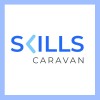Unlocking the Power of AI in Human Resources
In the age of technological advancements, the potential impact of AI on various sectors, including Human Resources, raises questions about the future of work. This blog explores how AI can transform HR practices, offering insights into its benefits, limitations, and implications for the future.
Exploring the Influence of Generative AI in HR
HR functions such as recruitment, onboarding, training, and performance management are integral parts of organizational operations. With the evolution towards a more integrated HR approach, organizations are faced with challenges like high turnover rates, workforce stress, and the need for upskilling employees. The current priorities for HR professionals include diversity, employee experience, and internal efficiency.
By leveraging AI, HR teams can streamline processes, reduce administrative burdens, and empower employees to focus on core responsibilities. The role of HR professionals is shifting towards creators and consultants, allowing them to innovate and enhance HR solutions.
Practical AI Applications in HR
AI technologies are revolutionizing HR practices through various applications:
- Talent Intelligence: Platforms for analyzing employee skills and promoting pay equity.
- Employee Experience Applications: Chatbots for smoother onboarding and administrative tasks.
- Training and Compliance Tools: AI-driven training materials for personalized learning experiences.
- Career Development Platforms: Personalized career pathways based on individual skills.
- Performance Management: AI tools to identify underperformance and analyze team dynamics.
- Retention and Engagement Analysis: Insights into factors affecting employee turnover and engagement.
Embracing AI in HR
Organizations looking to implement AI in HR should focus on addressing specific challenges, involving IT from the start, and ensuring ongoing maintenance for system accuracy. As HR professionals adapt to these changes, their roles will shift towards analysis, training AI systems, and enhancing product development.
Future Trends in AI-Enabled HR
AI holds the potential to transform HR practices with future trends including predictive analytics, virtual HR assistants, and chatbots for immediate support. By leveraging AI capabilities, HR professionals can make informed decisions and enhance operational efficiency.
The Human-AI Partnership in HR
While AI enhances operational efficiency in HR, it is essential to recognize that AI is meant to complement human capabilities, not replace them entirely. Human judgment and expertise play crucial roles in evaluating cultural fit and interpersonal dynamics within organizations. Human oversight is necessary to ensure ethical AI usage and monitor for bias or errors.
In conclusion, AI serves as an efficiency maximizer in HR, working in tandem with human expertise to drive strategic and data-driven decision-making. By integrating AI thoughtfully, HR professionals can optimize workflows and enhance the overall performance of the organization.
Exploring the Potential of AI in HR: Embrace Change Responsibly
While concerns about AI in HR are valid, embracing technological advancements can lead to streamlined processes, freeing up time for more critical HR tasks. Organizations should study the implementation potential of AI to ensure a seamless integration that benefits all stakeholders.
Final Thoughts
As the HR landscape evolves with AI integration, the collaboration between human professionals and AI technologies will unlock new opportunities for enhancing workplace practices. By embracing AI responsibly and recognizing the value of human contributions, organizations can create a harmonious synergy between technology and human expertise.

Skills Caravan
Discover how Skills Caravan’s multi-product Learning Experience Platform can transform your organization’s learning and development process.



